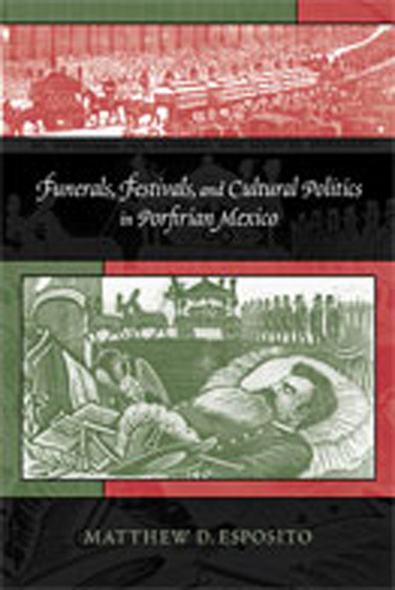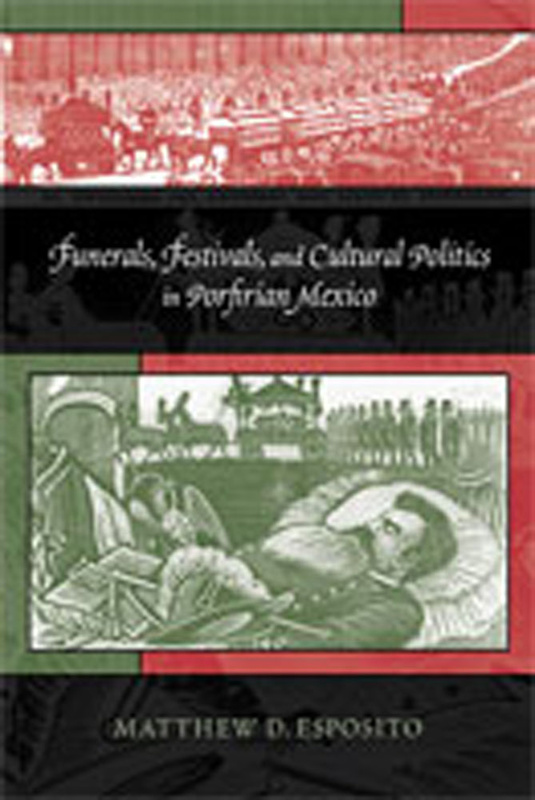Funerals, Festivals, and Cultural Politics in Porfirian Mexico
When President Benito Juárez died unexpectedly of a heart attack in 1872, the Mexican government declared a seven-day period of mourning. Nearly the entire population of Mexico City filed past Juárez's body as it lay in state in the National Palace. Over 100,000 people watched the magnificent procession of his hearse, and countless mourners vied for position to listen to his eulogies. Juárez's was the last state funeral for a sitting president in republican Mexico, and the public response proved the existence of a Mexican national community. It also gave birth to the cultural politics and mythical discourse of the Porfirian regime that would overthrow Juárez's successor in 1876.
In 1902 Mexican journalist, congressman, and intellectual Justo Sierra asserted that Mexico gained both national pride and its international personality during the long reign of Porfirio Díaz. Matthew Esposito argues that much of this identity stemmed from Díaz's reliance on memorialism. Over the course of thirty-five years, the Porfirian state constructed dozens of national monuments, performed countless commemorations, and held 110 state funerals. While most historians have argued that Díaz's reign owed its longevity to extralegal activities and personal appeals to loyalty, Esposito examines Díaz's successful manipulation of cults of the dead, hero cults, and national memory to shape the perception of his leadership.
Esposito's study is a valuable addition to the recent scholarship on the Díaz regime.'
. . .an impressively rich work, which convincingly demonstrates how highly significant and contested funeral rituals can be in transitional times and how they may becomea space for the projection of national agendas, religious meanings, and the negotiation between tradition and modernity.'
. . .with its fascinating detail, lively narrative, sharp analysis and historiographical significance, Esposito's book is an engaging and important study of political culture in the Porfiriato.'
. . .a fascinating read. . .'
Matthew D. Esposito is associate professor and chair of the department of history at Drake University. He is the author of numerous articles and reviews on Mexican cultural history.





